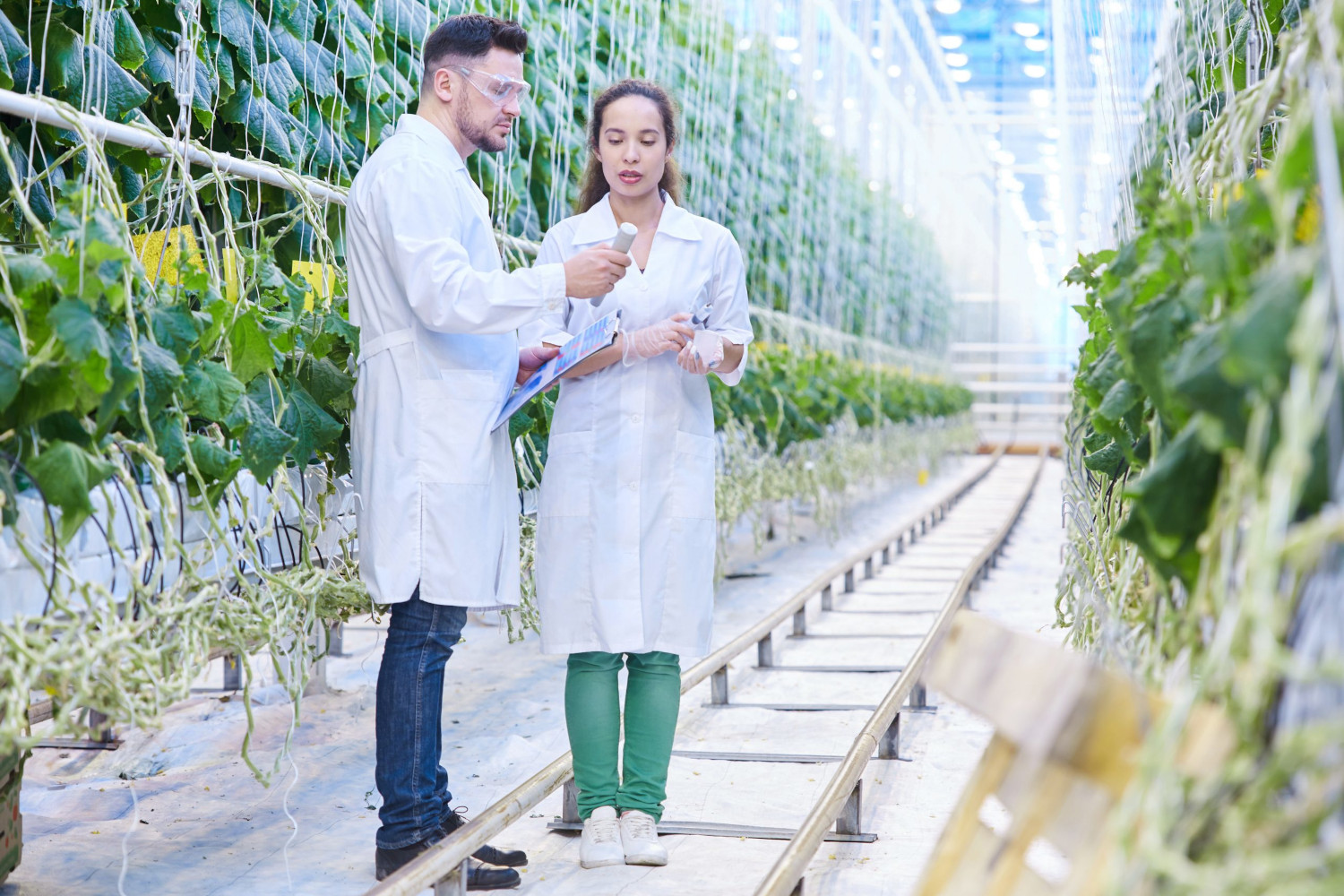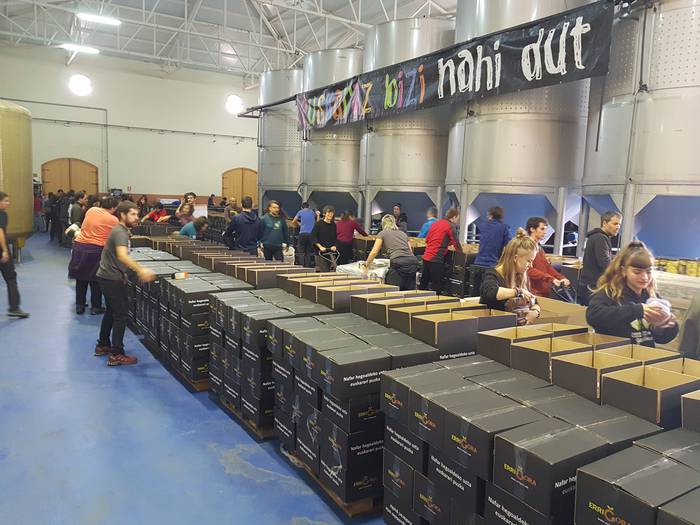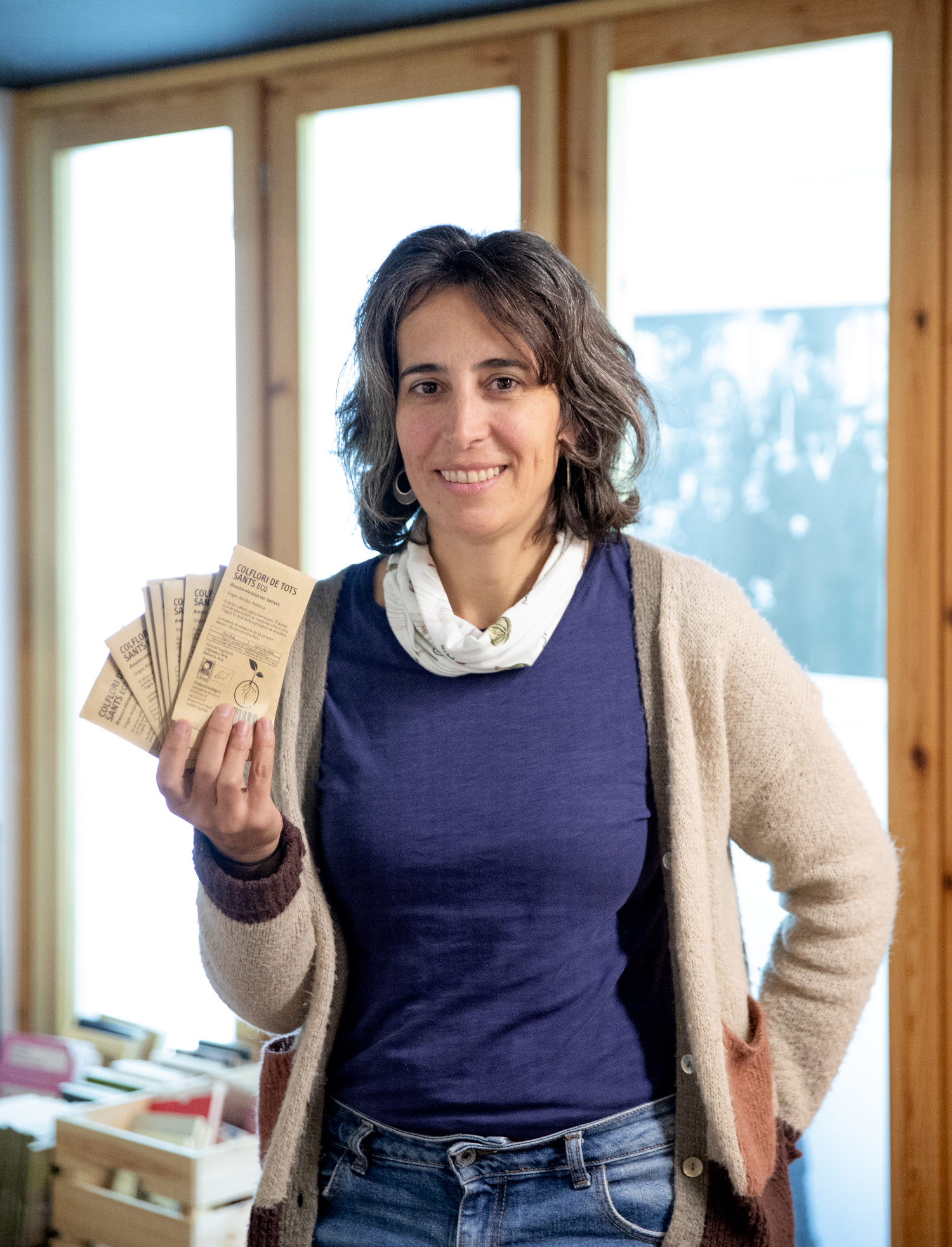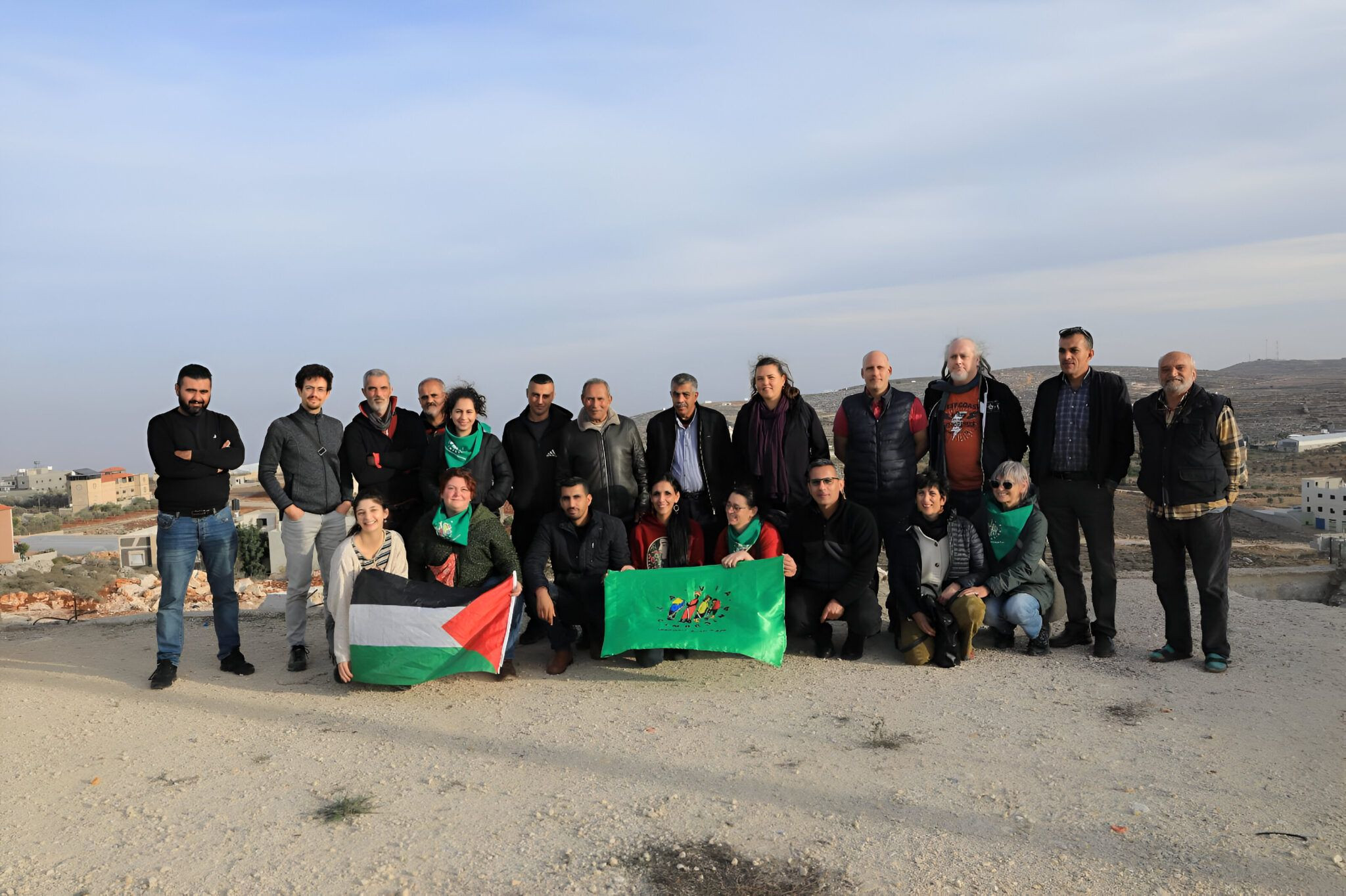How to revitalize the local fair? Bergara's experience
- In Bergara, the Food Bureau has been set up, from which various actions are being taken to strengthen the local market and to work on the relief of the baserritars. The horticulturist Jon Ruiz de Egino, a member of the Eskubaratz project, is part of the Food Table. And the tendera Aitziber Plazaola, a member of the cooperative Ereindajan. In Egonarria they explained the initiatives that have been taken.

Three or four years ago the Bergara Food Bureau was set up, among various agents of the municipality: City Hall, Rural Development Association, Ereindajan cooperative, producers, Eskubaratz project, individuals... Ms. Plazaola explains that, from the beginning, the objective was "to develop Bergara's food strategy, taking agroecology as a course".
They shared their own perceptions and concerns and created two working groups to respond to the gaps in the people: The Azoka working group and the Relief working group.
How to boost declining markets?
In Bergara, two fairs are distinguished: one is the building, which is open every day, and another weekly.
This weekly periodicity was held on the first Saturdays, but for seven or eight years it has been held on Wednesdays afternoon. As explained by Jon Ruiz de Egino, "in a diagnosis we saw that fairs approached mainly older people, because as it was Saturday morning, young people probably did not have the habit of approaching the market. An attempt was made to attract another audience, made on Wednesdays afternoon. In 2014 or we started, and well, I'm not going to say that I have a tug of Christ, but I've created and a habit is maintained."
However, the power table has been incorporated into the market building. Ruiz de Egino: "Throughout the week it was observed that the building was empty, currently there is only one butchery, a fridge and a laundry, which does not respond to the need to get food on a daily basis." They began to work to turn the Azoka building around, as Plazaola explained: "The stalls were on two sides and a stack of them empty, and it was thought to throw the stalls on one side and create a common space... From there, the City Hall was dedicated to the construction of the building, as it was a matter of infrastructure. But on the other hand, we started talking about the content of the project. And we began to reinvent the idea of fairs a little: to build a bridge between producers and consumers, not for profit or that is raised as an ethical mediation, and to offer products of many small producers in a common space, with a flexible timetable and with the aim of making quality products and food available to the citizens...". The resulting projects are the shop and the kitchen.
Plazaola notes that markets are in decline in most places and that different trends are being adopted in each of them: "In some places, especially in urban centers, fairs are heading for tourism, in other places more like leisure space, decentralized food and some romantic idea of the market... In the path that we have taken the power plant is food." "Also the primary sector," adds Ruiz de Egino.
Which people are going to buy at the fair?
Eli Pagola asks in the Egonarria program about the profile of those who are going to buy to the fair. Ruiz de Egino replies: "There are different profiles: conscious people, who believe that it is the function of the fair, who believes that it is the place to get the local product... there is another profile that has gone and continues to buy as usual throughout life. There is another profile, that of widowed women, who go on Saturday shopping and search for cheap or at least affordable food. There is also another profile of newborn parents, who have become accustomed to coming to the fair suddenly because they give importance to eating at home... But as for age, yes, they're mostly the ones that go a little bit beyond age."
You can see the full interview in:
Orthopaedic Service to alleviate the workload of producers
The second working group of the Bergara Food Bureau deals with rereading. Ruiz de Egino explains that in the diagnosis made in 2022-2023 it was seen that in the Valle del Alto Deba there were between 21 and 22 years before and ten years after there were only 11 professional orchards, "and also most of the ones that remained were those that would disappear in the next 10 years. We didn't see an easy relay, people didn't get close to the primary sector."
In addition to this diagnosis, they participated in the Biolur Duina study, which concluded that the gardeners had a very high workload and were severely exposed to wages, which in most cases was to not proceed with the motives.
To respond to this situation, the Bergara Food Bureau launched a "orthopaedic" service this March: a person who will go daily to a vegetable garden in the valley to relieve the workload has been hired. Ruiz de Egino is very comfortable with this service and says that "the goal is not to drop one more project". Recruitment has been carried out by the Rural Development Association, which is financed by municipalities, so all municipalities have seen the necessary service.
Another line of work that the relay team has put in place is schools. To raise money from Ikasbidai, most schools sell chocolates, but thanks to their work in Bergara, they sell baskets with products from the region. Baskets have been made in auzolan and the subject has been worked on within the classroom. Ruiz de Egino highly appreciates: "We went to 16-year-olds to explain our profession when they are at the age of choosing the profession to show that it is possible to do so collectively and live from it."
Bizkaigane elkarteak elikadura burujabetzan oinarritutako proiektua du Errigoitin (Bizkaia), 1983tik. Instalazioak dauden lur eremutik aterarazi nahi du lur jabeak elkartea. EHNE Bizkaia sindikatuak adierazi duenez, instalazioek lege eta administrazio eskakizun guztiak betetzen... [+]
Martxoaren 10etik 26ra izango da udaberriko kanpaina. 'Beste modura, denona de onura' lelopean arituko dira gertuko ekoizpena, banaketa eta kontsumoa babestu eta sustatzeko, ager zonaldean euskara hauspotzen duten bitartean. Apirila amaieratik aurrera jasoko dira... [+]
Euskal Herriko bi muturretatik datoz Itziar (Bilbo, 1982) eta Ekaitz (Erriberri, 2002), sortzen ari den Burujabetzaren Aldeko Mugimenduaren berri ematera. Euskal Herrian diren burujabetza prozesu ugariak arloz arlo bultzatu eta indartu nahi ditu BAMek. Lan horretan hasteko,... [+]
Emakume bakoitzaren errelatotik abiatuta, lurrari eta elikadurari buruzko jakituria kolektibizatu eta sukaldeko iruditegia irauli nahi ditu Ziminttere proiektuak, mahai baten bueltan, sukaldean bertan eta elikagaiak eskutan darabiltzaten bitartean.






















